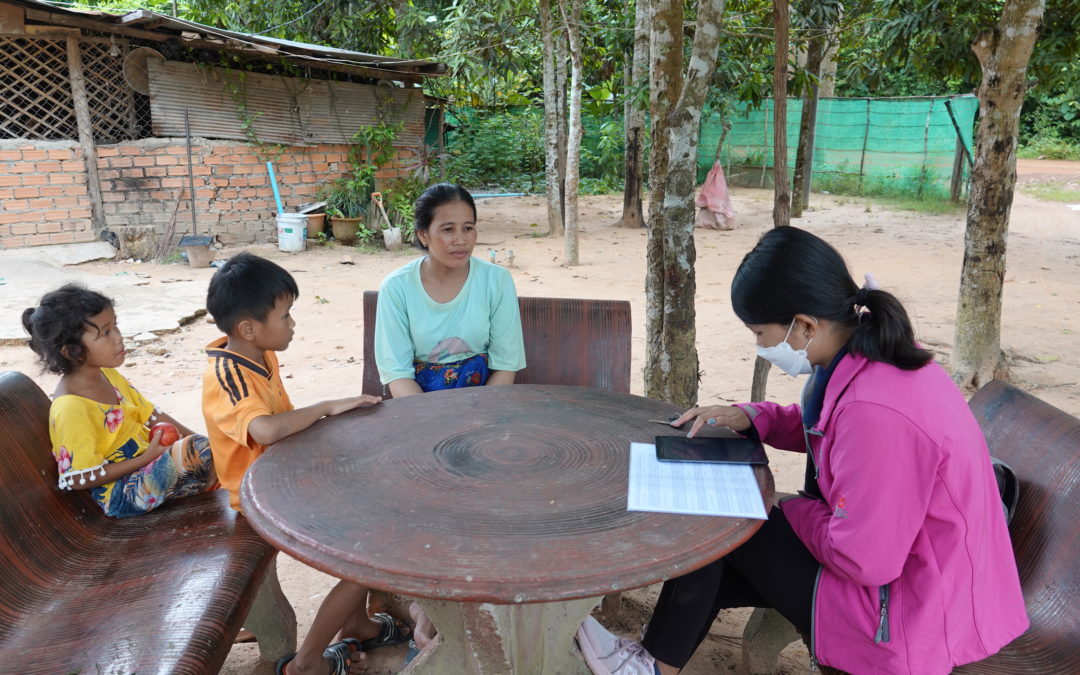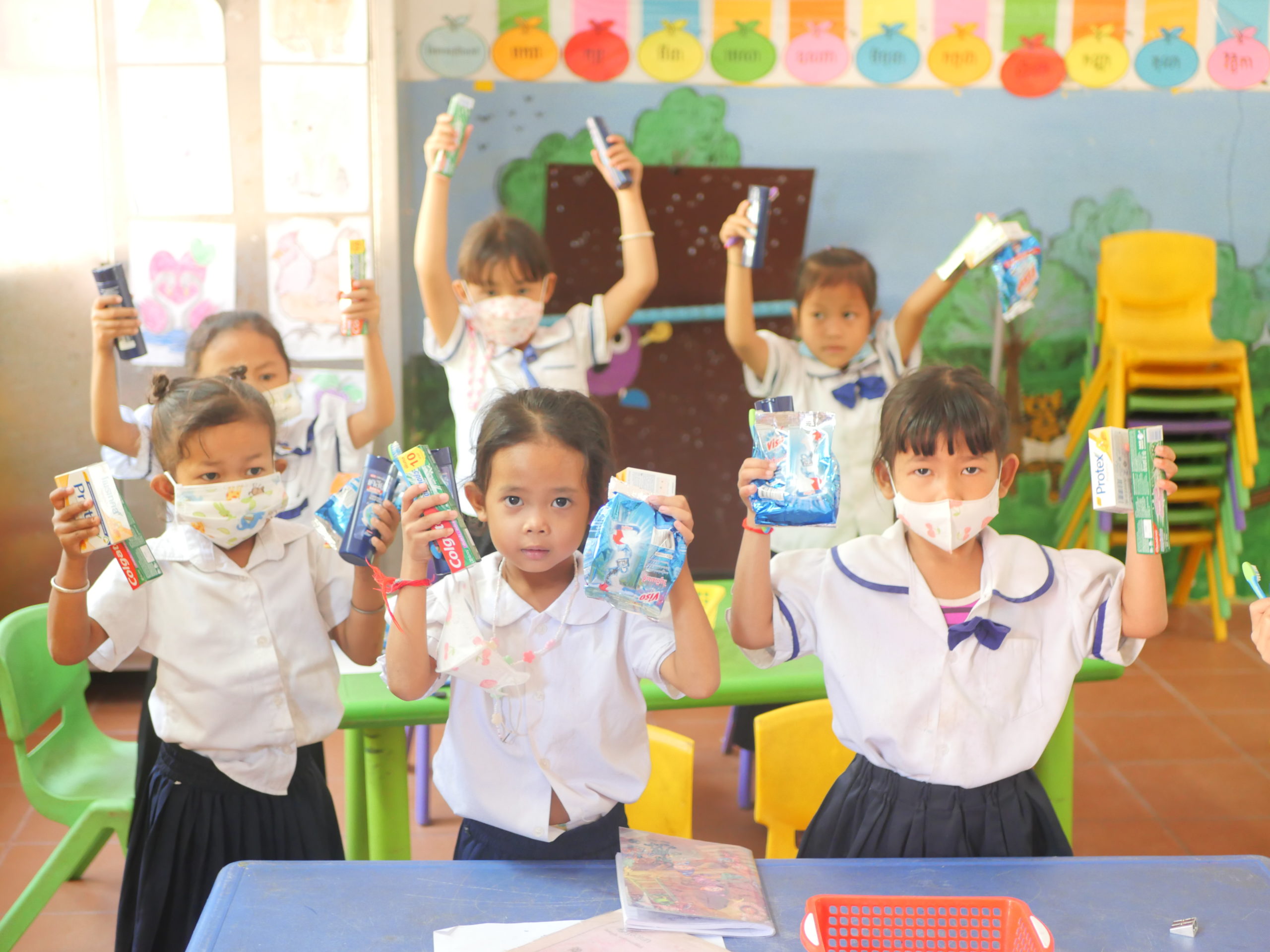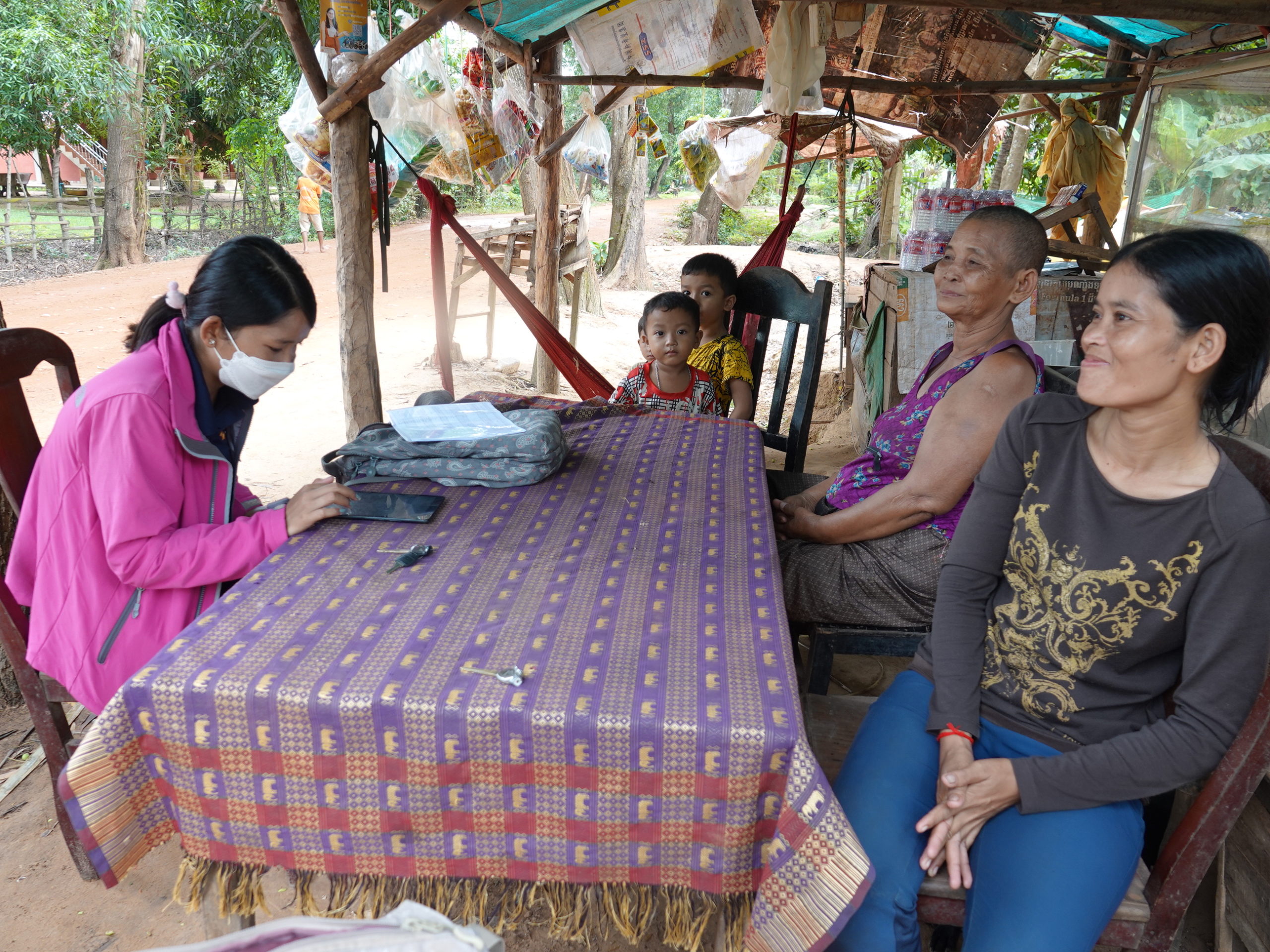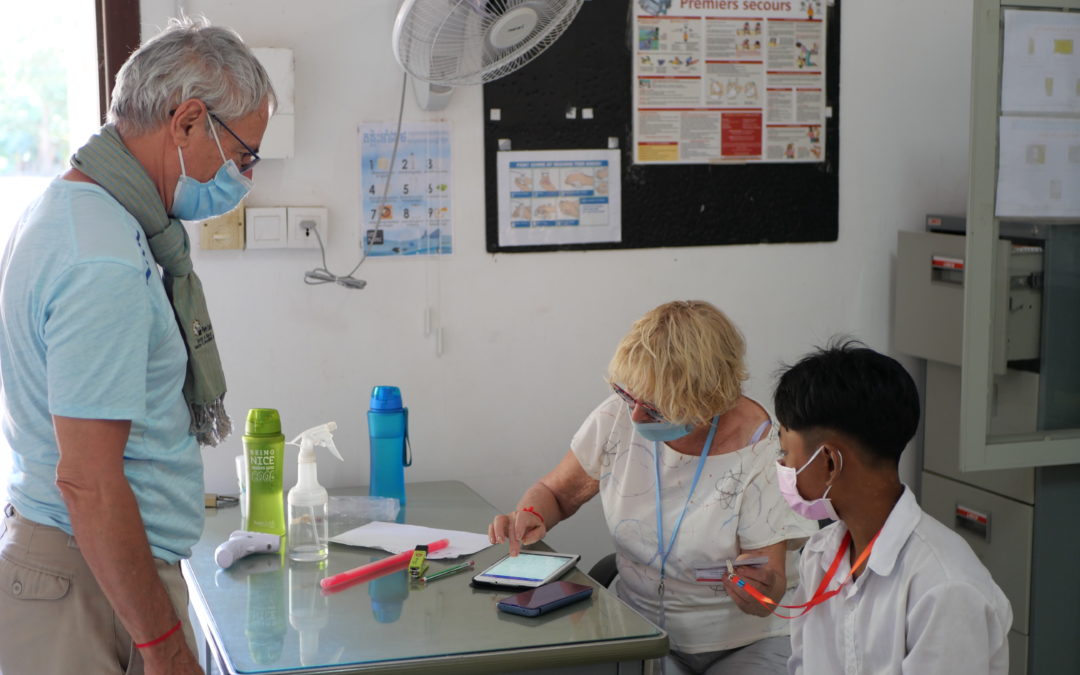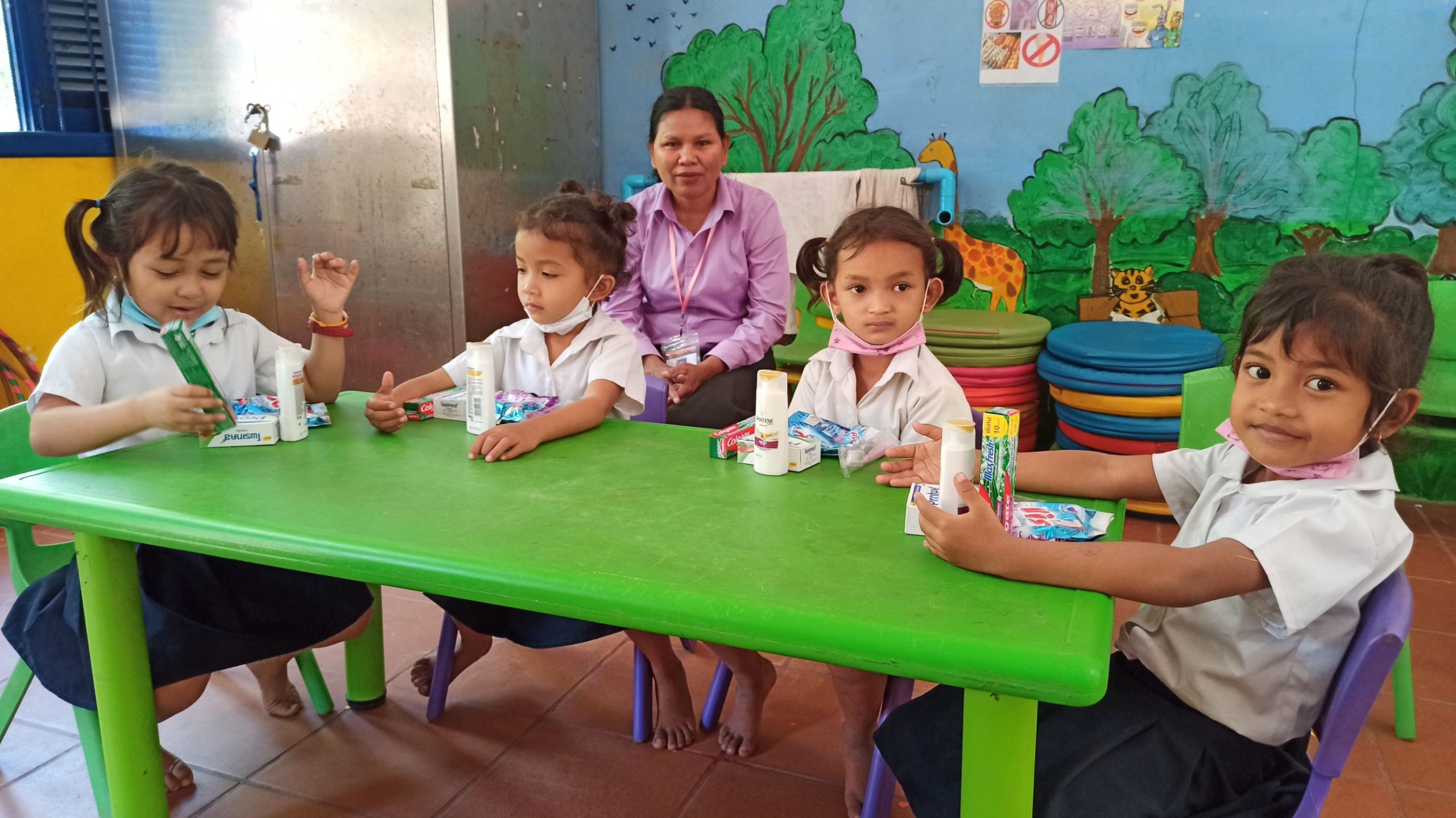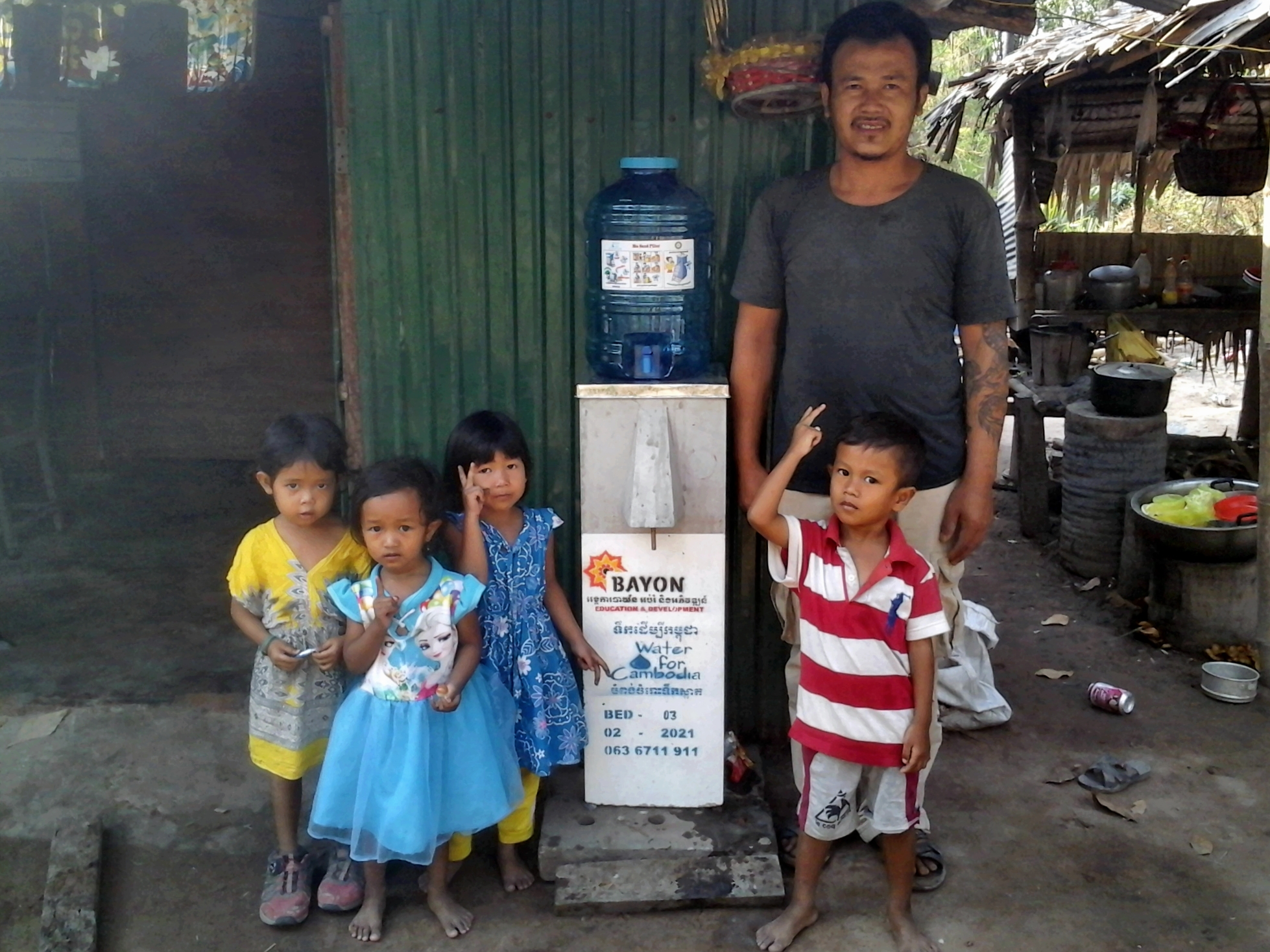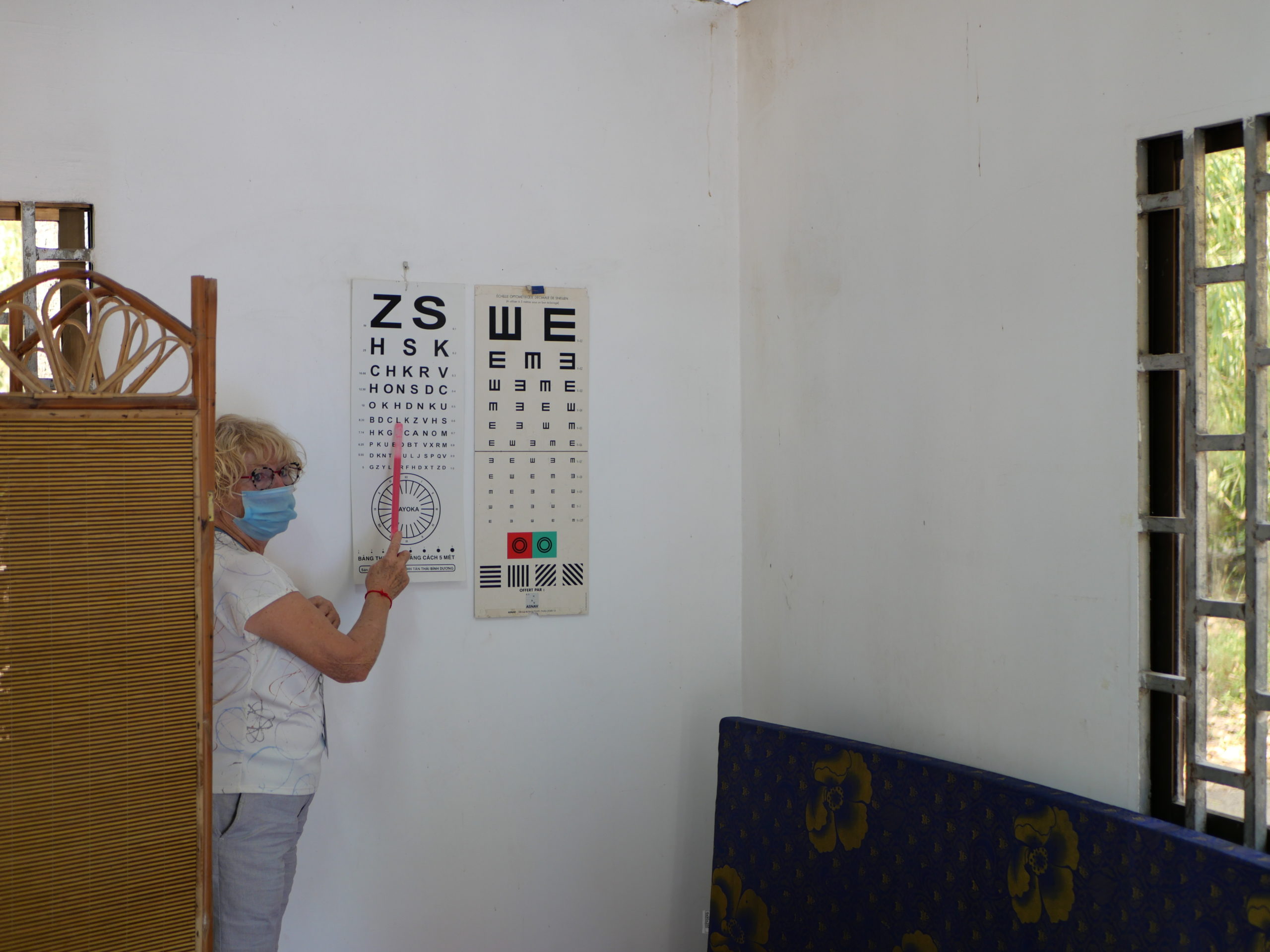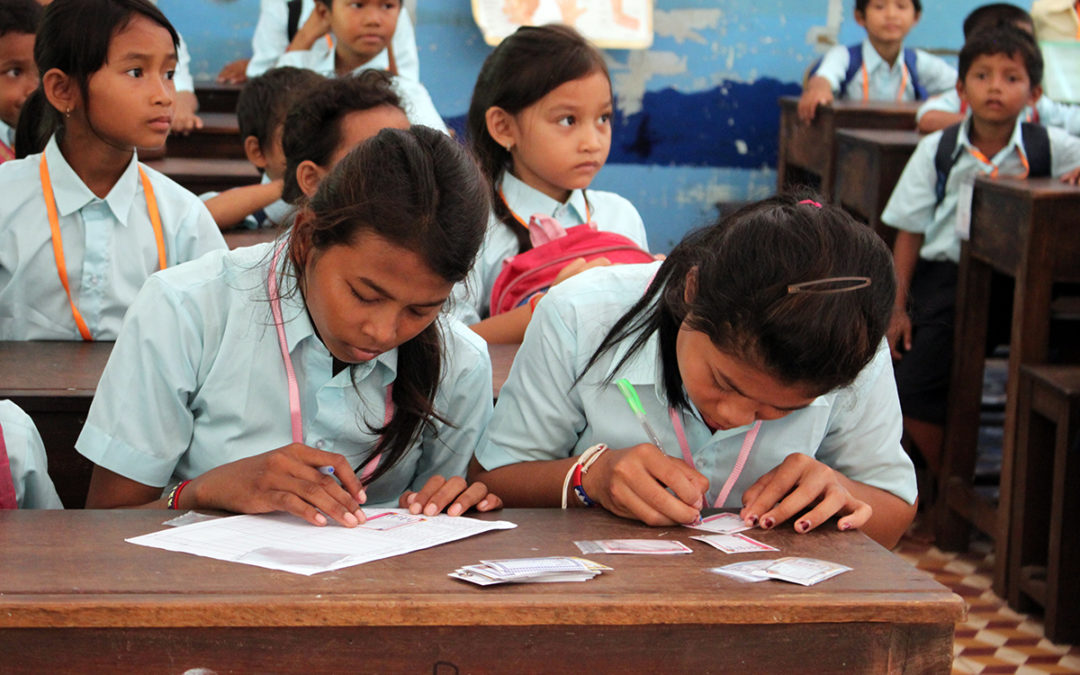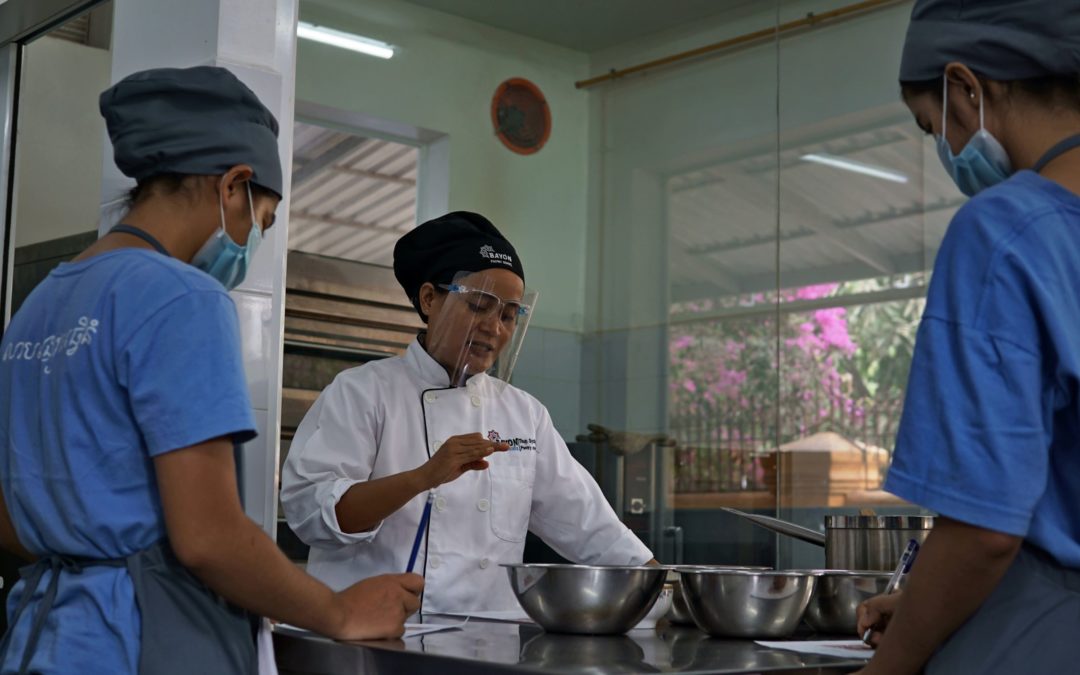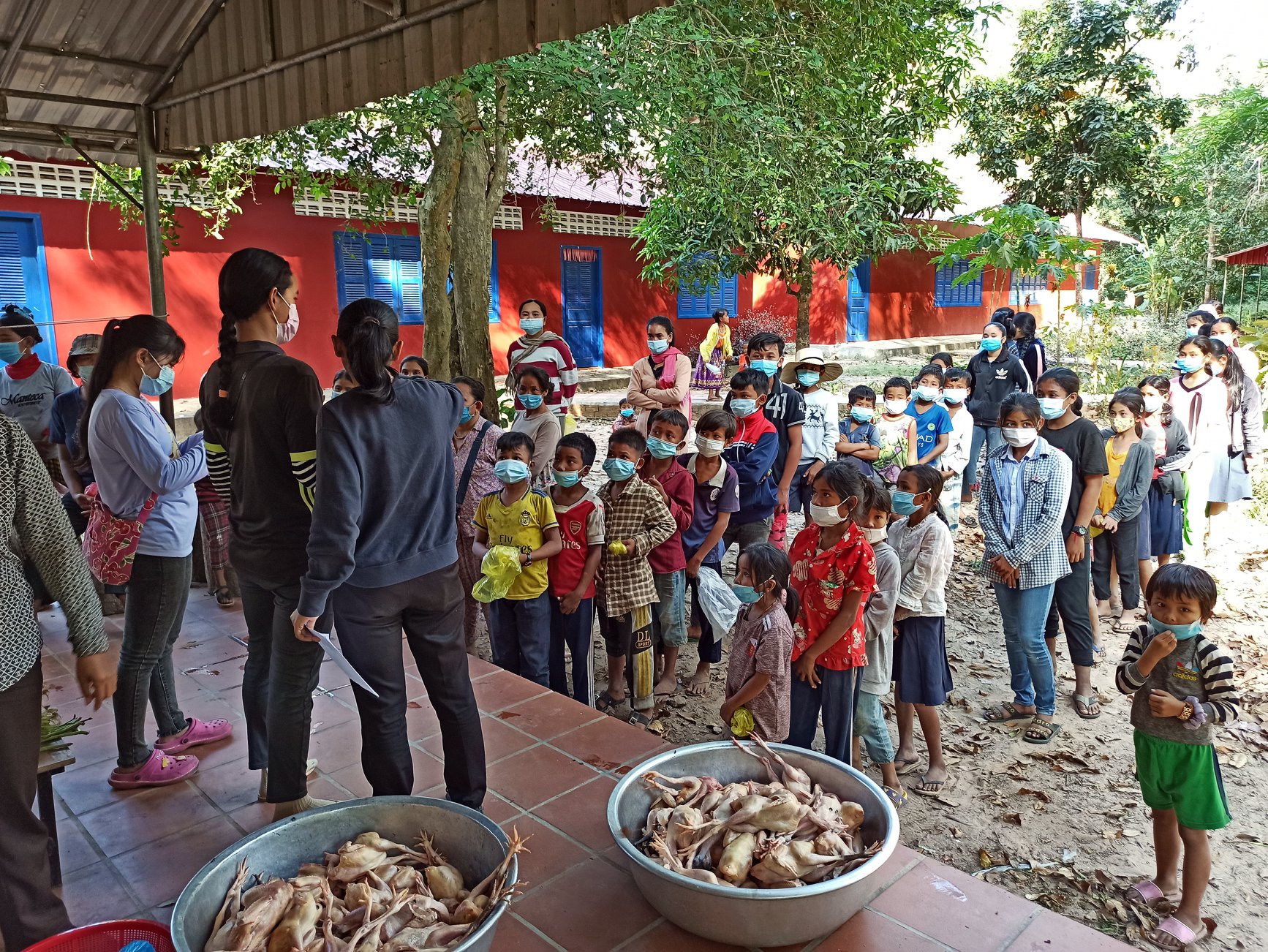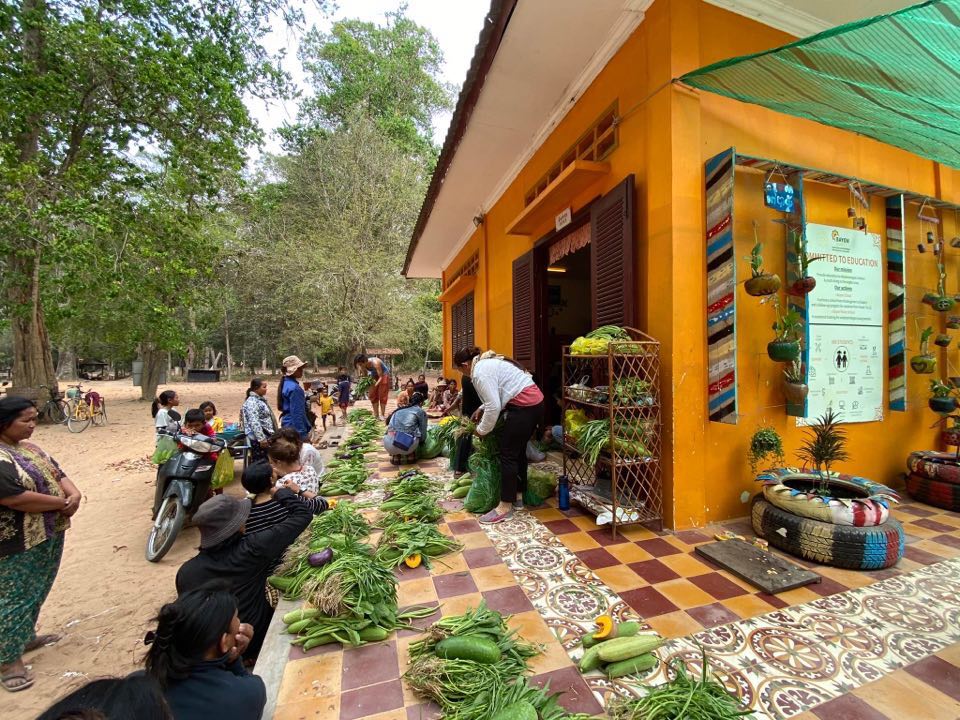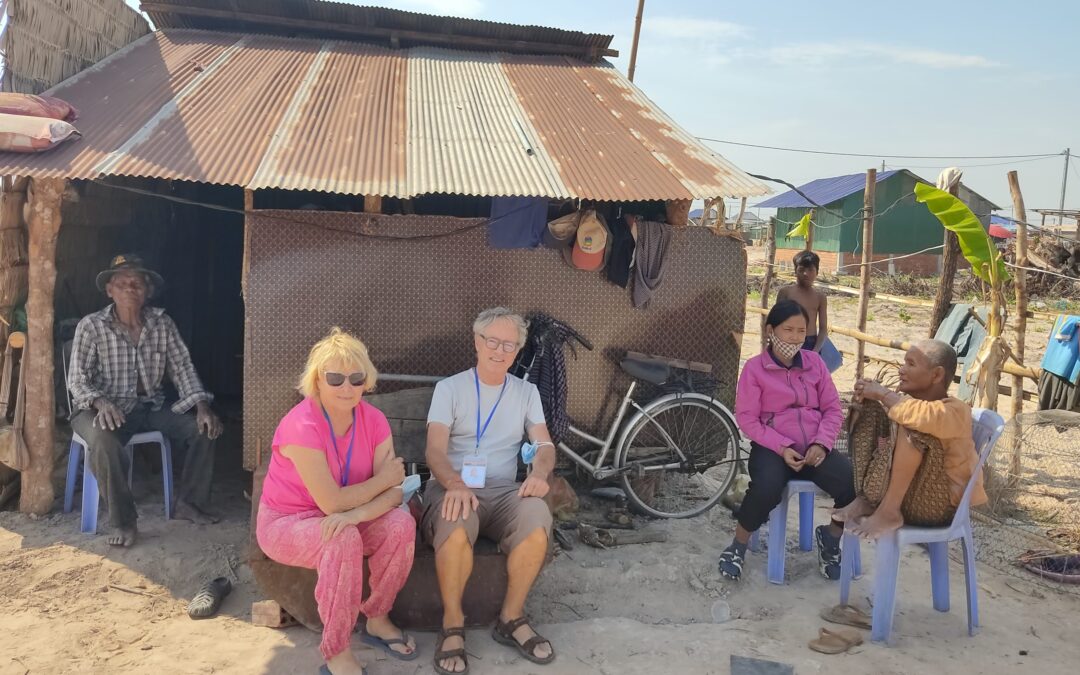
Jean Pierre & Michèle
Michèle, an executive at Danone Eaux (Evian), discovered the Bayon School when it was created in 1997 by Marcel Bertaud, Director of Danone Japan and co-founder of the Bayon, with whom she works. In 2006, Michèle and her husband Jean-Pierre, a doctor by profession, came to Siem Reap with Marcel Bertaud to visit the Bayon School. It was an unforgettable experience, as close as possible to our beneficiaries.
In 2016, they decided to invest in the Bayon School by supporting the education and health of young people. Touched by our pupils, sensitive to the need to ensure their long-term quality education, and aware that good health is an essential condition for their development, Jean-Pierre became the NGO’s medical referent, assisted by Michèle. The Bayon School has become like a second home for them. In Siem Reap 6 months a year, they take care of the annual medical check-up of all our beneficiaries, namely :
- 184 elementary school pupils
- 20 female pastry-making students
- 20 agroecology students
- The program team
The health and well-being of individuals are fundamental to their personal development and their ability to lead active, productive lives. As part of our mission within the organization, we have undertaken a series of actions to promote health and provide social assistance to those in need. This report details our efforts in these areas over the recent period.
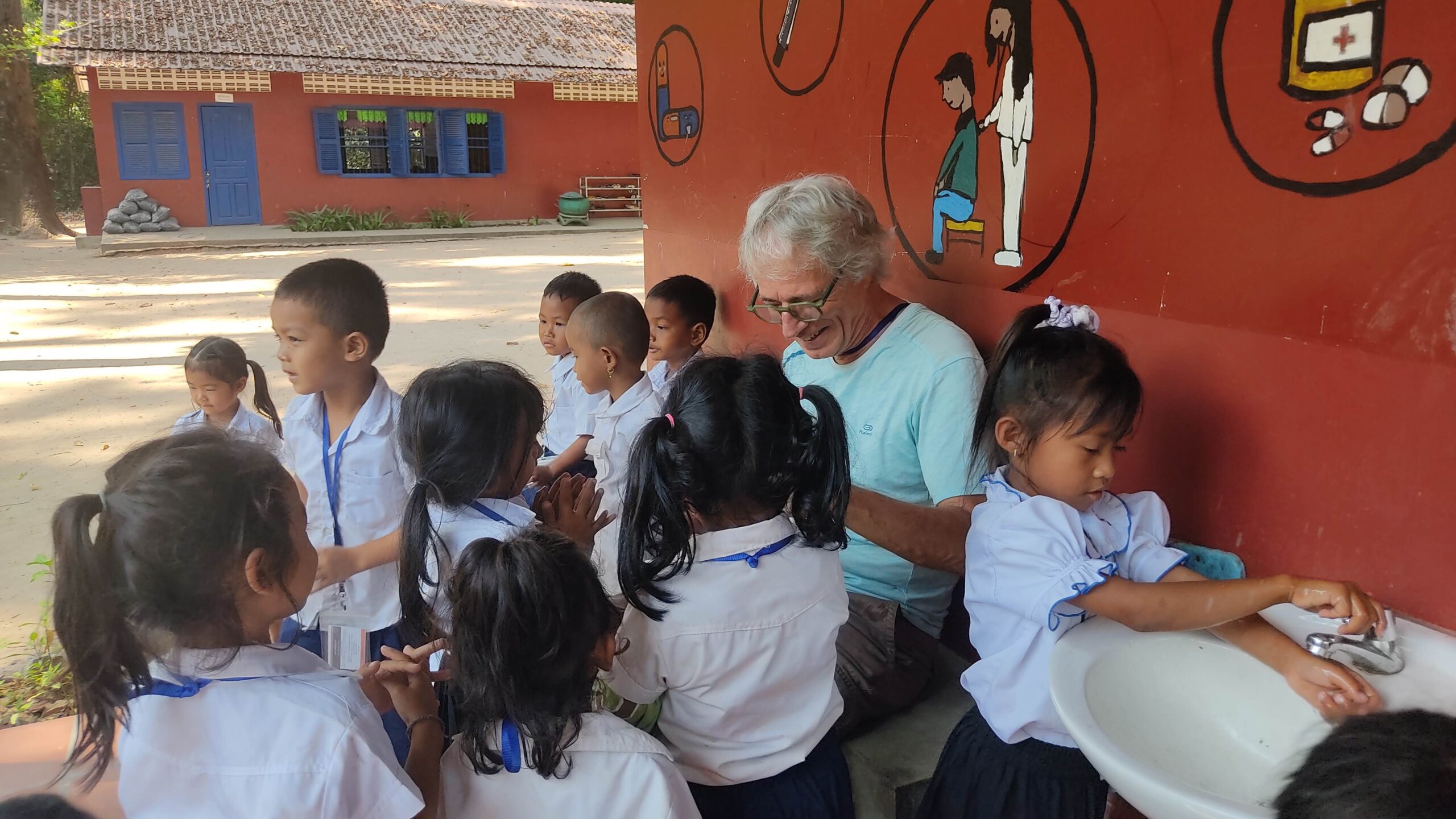
Health
The introduction of health check-ups for all students and beneficiaries is one of the pillars of Jean-Pierre’s health initiatives for the Bayon school. This initiative aims to detect potential health problems at an early stage and provide the necessary interventions to ensure students’ well-being. He has been running a dental follow-up program for all students for several years. It has also provided complex medical follow-up for several students with specific health conditions:
- Colostomy for an elementary school pupil
- Medical care for an agro-ecology school pupil suffering from a spinal injury following a traffic accident
- Medical care for a student from the pastry school with a leg injury requiring surgery
- Medical care for a university student suffering from tuberculosis
Thanks to its network of competent doctors built up over the years, it is able to offer comprehensive medical care and recommendations tailored to each individual case.
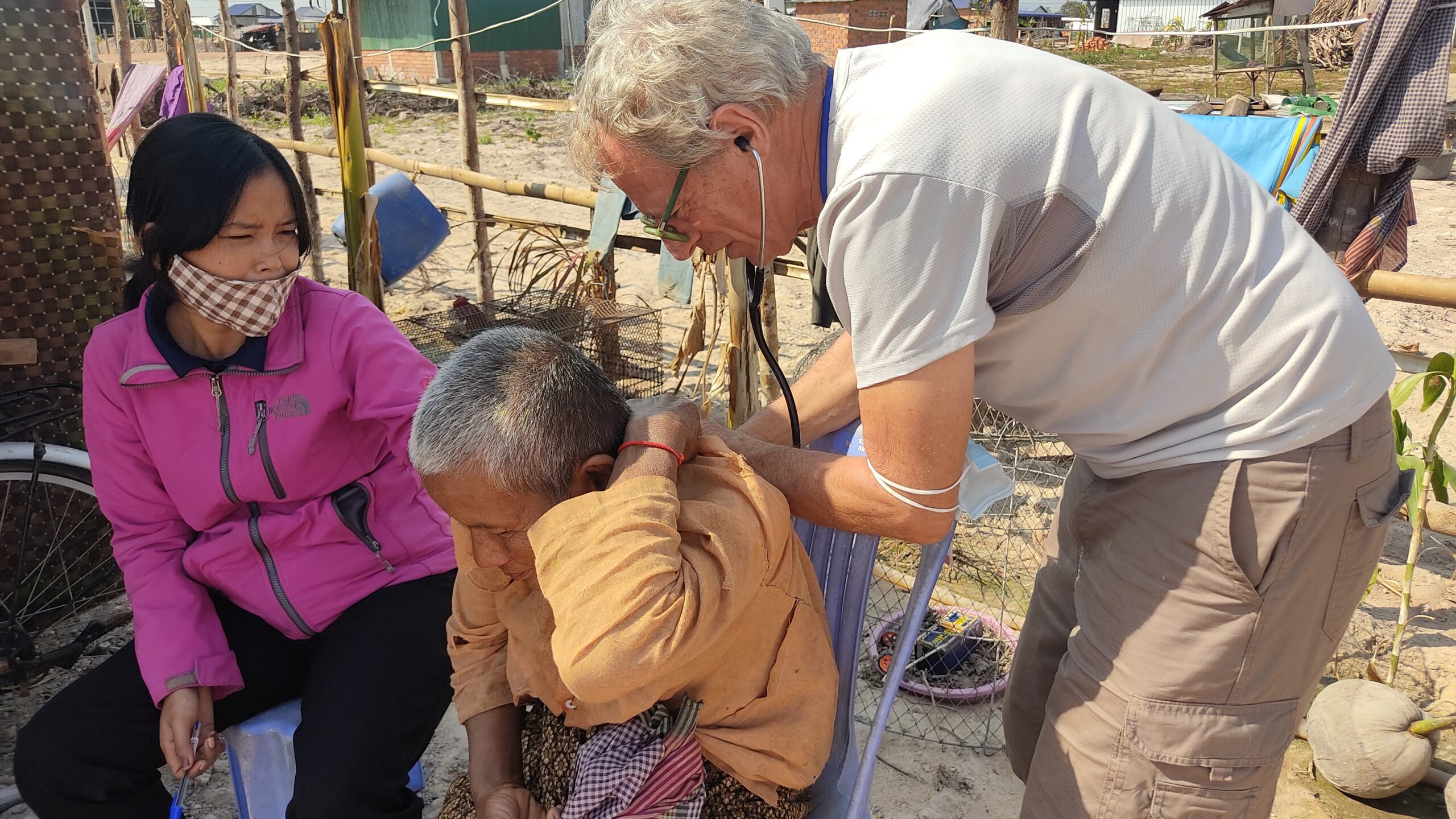
Social
In parallel with their healthcare initiatives, Jean-Pierre and Michèle conducted an in-depth survey of the needs of the students’ families. Working with our social team, in particular Romain, they identified the challenges these families face and implemented concrete solutions. Among notable achievements, they facilitated the installation of sand filters and latrines for 160 families, improving their living conditions and environmental health. In addition, they assisted social workers to strengthen their skills in responding to families’ needs in an emphatic way.
Administrative management
As part of their activities, Jean-Pierre and Michèle also collaborated on the implementation of the “Team Desk” management tool, which facilitates the coordination and monitoring of our actions (social, educational, health). This platform enables us to manage our resources efficiently and ensure better communication within our organization.
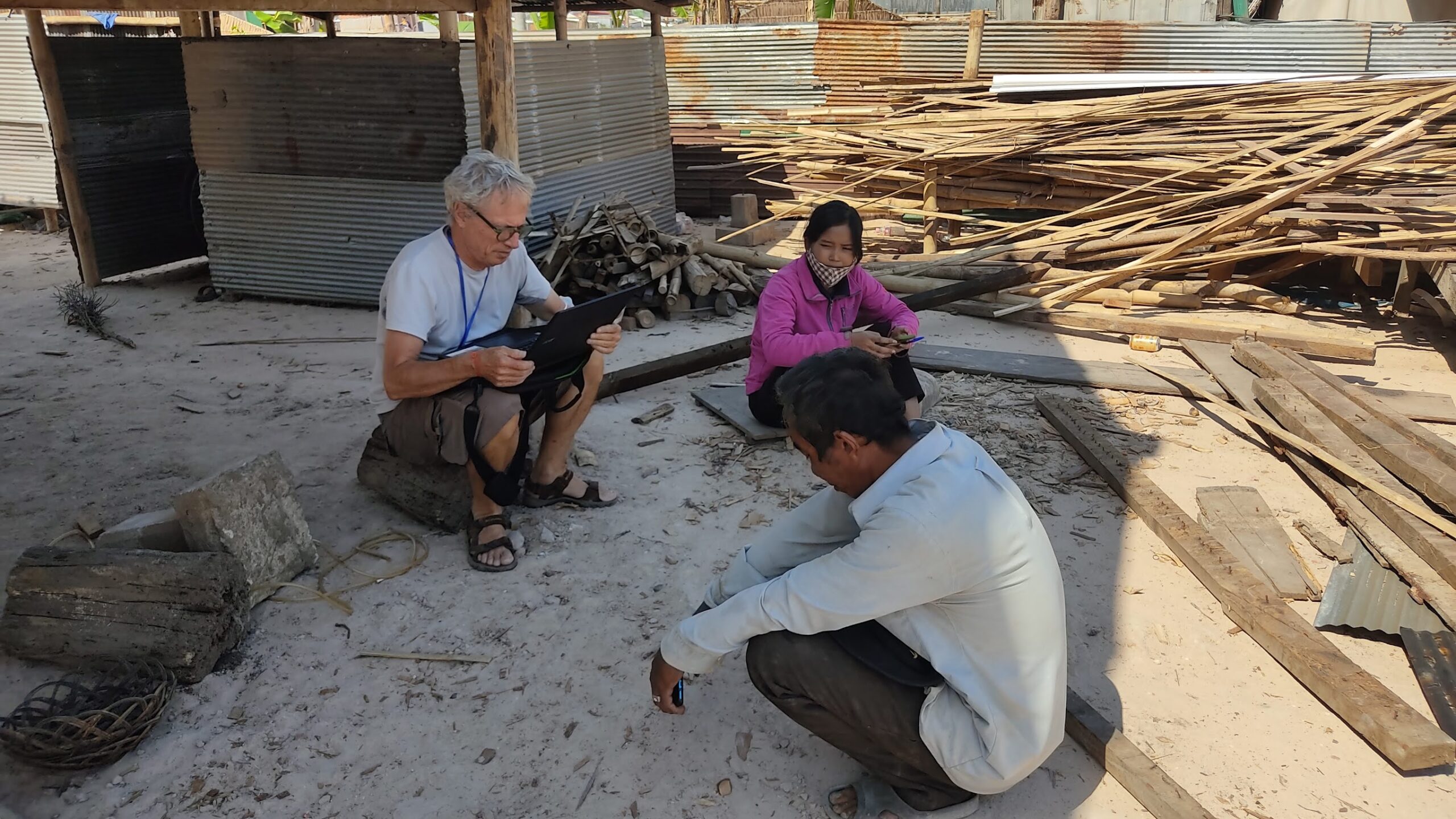
Specific intervention: “Run Ta Ek
Jean-Pierre and Michèle know our families well and visit our students’ villages every year. Deeply concerned by the recent displacement of several families in Run Ta Ek, they decided to monitor the families’ conditions of displacement, in order to assess with the NGO’s social teams their needs and provide the necessary solutions in terms of housing, health, social and educational support.
The aim was to help them achieve sustainable autonomy by strengthening their resilience and providing them with the resources they needed to improve their quality of life. Thanks to this work, the École du Bayon teams, together with Jean-Pierre and Michèle, identified the help these “former” families needed (assessment of assistance, identification of partners, action plan and budget). All this was done with the aim of giving the students and their families the means to get out of this precarious situation, an essential anchor to be able to study in good conditions and give birth or rebirth to their future projects.
- Every 6 months, we come back to the Bayon School to help out – it’s an addiction we’re not trying to cure.
- Our involvement is amply rewarded by the smiles of the families and the joie de vivre of the pupils.
Michèle and Jean Pierre
